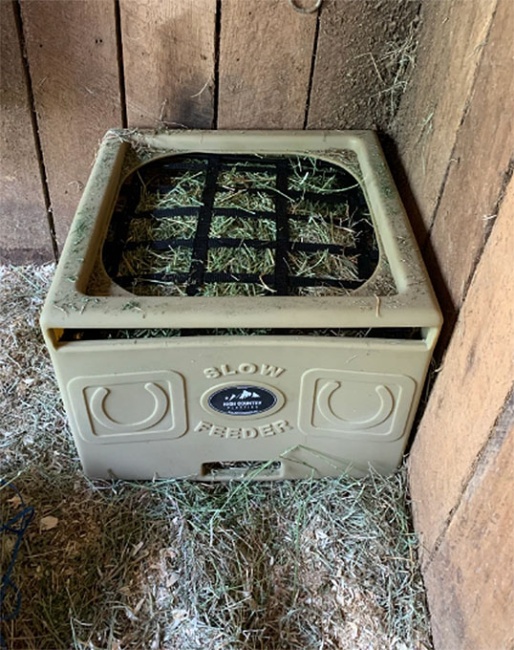
-- This study was conducted by Miranda Brauns, Ahmed Ali and Amy McLean and presented at the 2024 ISES Conference
The Comparative Effects of Three Enrichment Items on the Physiology and Behaviour of Stalled Horses
Summary
Most horses have limited turnout and spend most time standing in stalls. Enrichment toys can help improve welfare; therefore, this study compared how different enrichments (hay feeder, activity ball, mirror) affected horse behaviour and physiology. Enrichment increased heart rate, grazing and movement, and decreased standing, social and frustration behaviours. Effects were stronger during midday. All items were effective, though hay feeder had stronger effects, and may be provided to improve mood, behaviour, health, and welfare.
The Study
Domestic horse management contrasts with their natural environment and behavioural needs. Small stalls and regulated feedings increase standing, reduce foraging, and risk well-being. Enrichment seeks to encourage naturalistic activity budgets; however, effects on physiology are under-researched as well as how item type and provision time influences enrichment effects.
This study analyzed physiology and behaviour of nine stalled quarter horses when provided hay feeders (High Country Plastics 16”), activity balls (Horsemen’s Pride 25”), and mirrors (24”x24”) to better understand effects on welfare.
Horses were randomly divided into three groups and monitored over three trials, with each involving a control day and enrichment day. Each group received a different enrichment item per trail. 30-minute observations were conducted four times per day (morning, noon, afternoon, evening). Enrichment was removed between observations and during 5-day washout periods between trials. Heart and respiration rate were recorded during observations approximately every 21 seconds through Nightwatch® Smart Halters™; behaviours were scored via video recordings in BORIS using focal instantaneous scan sampling at 30-second intervals. Observers were not blind to treatments. Enrichment effects, item type, time-of-day, and possible interactions on each variable were tested using generalized linear mixed models; Tukey’s HSD multiple comparison procedure were used for post-hoc comparisons (statistical significance p≤0.05).
Enrichment significantly increased heart rate from control (p=0.03), and the hay feeder showed strongest effects among enrichment items. No significant differences in respiration rate were recorded. Provision time did not affect heart rate within any treatments except the mirror which was significantly lower in the evening compared to other times (p=0.02).
Enrichment, regardless of type, encouraged more naturalistic activity budgets including significantly increased foraging (p=0.01) and locomotion (p=0.03) and significantly decreased standing alert (p=0.04), standing rest (p=0.03), social interactions (p=0.02), and frustration behaviours (p=0.03).
While all items showed many effects and appeared effective enrichments, significance varied among individual treatments, suggesting item type may affect different behaviours. The hay feeder’s activity budget more closely resembled that of wild horses, suggesting it may more effectively fulfill overall behavioural needs.
Effects occurred throughout the day, with larger differences from control at noon and afternoon, compared to morning and evening; so owners should prioritize giving enrichment outside routine meal provision times.
In summary, providing enrichment positively effects physiology and behaviour and may improve emotional states, behavioural needs, health, and overall welfare of stalled horses. Further studies with larger sample size are recommended to explore different items, management, and long-term effects.
Related Links
2024 International Society for Equitation Science Conference Coming to New Zealand
More Equine Health Care Articles on Eurodressage